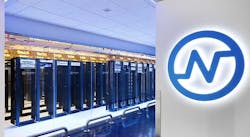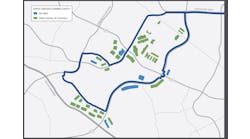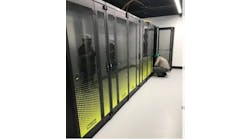Netrality Expands Carrier Hotel Network, Buys Indy Telcom Center
Internet growth is transforming infrastructure in cities large and small. That’s creating opportunities for digital infrastructure in regional markets, especially the carrier hotels that serve as the network hubs in these cities.
That’s the trend behind the latest data center M&A deal, in which Netrality Data Centers will acquire Indy Telcom Center and its Indianapolis campus, a key network intersection comprised of 11 buildings housing colocation, telecom and wireless network operators.
Netrality employs a real estate strategy built atop the enduring power of the cross connect – the physical connection between networks that knits the Internet together. The company operates carrier hotels, the multi-tenant buildings where networks meet and enable the smooth flow of data between carriers, network operators and content specialists. The company acquires carrier hotels and upgrades their interconnection infrastructure.
Netrality operates carrier hotels in major cities like Chicago, Philadelphia and Houston, but also is a key player in the Midwest with carrier hotels in St. Louis and Kansas City. The purchase of Indy Telcom Center adds another Midwest hub in Indianapolis, a city of 880,000 with suburbs that bring the total metro population to about 1.7 million.
“Indy Telcom Center is an exceptional campus that expands our ability to provide interconnection and strategic colocation to businesses dependent on ultra-low latency data processing across the Midwest,” said Gerald Marshall, Chief Executive Officer of Netrality Data Centers. “We are pleased at the opportunity to further expand our footprint and accelerate business growth in the robust, network-rich, region.”
Netrality will own approximately 205,000 square feet on the 9-acre Indianapolis campus, which includes wholesale and powered shell tenants and fiber customers. The campus features 13 metro network operators and 7 long-haul network operators including Lumen, Crown Castle, Telia Carrier, Windstream, Zayo and US Signal. Colocation providers operating at the complex include DataBank, 365 Data Centers and Lifeline Data Centers.
“Indy Telcom’s strategic Midwest location facilitates access to the fiber crossroads of America providing connectivity to Chicago, St. Louis, Columbus, Kansas City and Pittsburgh and making it a premier data center for telecom companies and enterprise customers,” Netrality said in its announcement. The current management team at Indy Telcom Center will remain in place.
An illustration of the newest building on the Indy Telcom Center campus, which is being acquired by Netrality. (Image: Indy Telcom Center)
Netrality’s growth is an example of how investor interest in digital infrastructure is bringing new energy to carrier hotels, which are typically older buildings in a city’s central business district. Carrier hotels became the early cornerstones of the Internet economy, and some of the most successful properties in the colocation industry. They are distinctive properties, and in more limited supply compared to data centers, as there’s often a single building or campus that is the predominant hub in a regional market.
Earlier this year the leading carrier hotel in Portland, the Pittock Block Building, sold for $326 million to a group including 1547 Real Estate and Harrison Street. Last year Digital Realty acquired a controlling interest in the Westin Building, the major carrier hotel in Seattle.
Netrality was acquired in 2019 by Macquarie Infrastructure Partners, an Australian firm that invests in major infrastructure projects and has a depth of financial resources and operating experience. Netrality portfolio now includes data centers in six markets: 210 North Tucker and 900 Walnut in St. Louis, 1102 Grand in Kansas City, 1301 Fannin in Houston, 401 North Broad in Philadelphia, 717 South Wells in Chicago, and the Indy Telcom Center.






